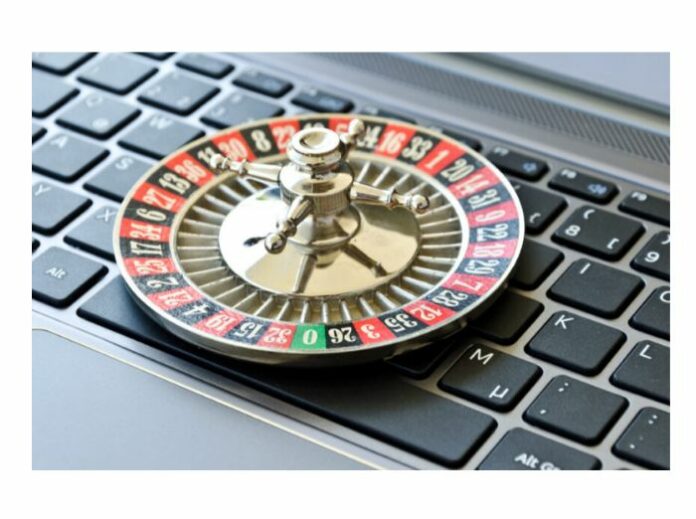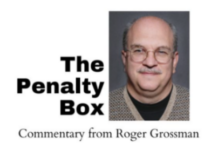Lisa Bonilla
Indiana Capital Chronicle
INDIANAPOLIS — The gaming industry and some Indiana lawmakers want to bring casinos and lotteries straight to your phone in the upcoming legislative session. After two years of failure, legal iGaming is gaining momentum with some key lawmakers holding out.
But the prospect brings other complications, like how lawmakers will tax the burgeoning product, problem gambling support and other details. And, there’s ongoing federal scrutiny of Indiana’s gambling environment — including recent convictions.
Legislation seeking to legalize iGaming is expected to come out of Indiana’s House of Representatives, via Rep. Ethan Manning, insiders said.
Drafts propose a tax rate between 18% and 19%, according to industry expert Ed Fiegenbaum, legal gambling guide Bonus and industry lobbyists. Problem gaming could get 3.2% to 3.5%, Feigenbaum said while on a gaming panel at an annual legislative conference last month.
The bill is likely to mimic previous legalization attempts, but the details from Manning himself are slim.
“At this time, it’s too early to speculate on the form any proposed legislation might take, but I will continue to have conversations with other members and stakeholders as we move forward,” Manning said in a statement to the Capital Chronicle.
Manning, along with fellow Republican Rep. Doug Gutwein, took a shot at legalization in 2022’s House Bill 1356. It died in the Public Policy Committee, as did Rep. Alan Morrison’s House Bill 1406 the year prior. Sen. Jon Ford, R-Terre Haute, has also filed bills in that chamber unsuccessfully.
That’s likely to change: Manning will be the committee’s new chair this year.
iGaming: whenever, wherever
Indiana legalized online sports betting in 2019, but it has yet to venture into non-sport iGaming: online casinos and lotteries.
iGaming brings poker, slot machines and more from far-flung casinos and their humbler lottery-ticket-selling counterparts straight to phones and other devices — complete with bright graphics, cheerful music, persistent push notifications and more.
Think of playing Candy Crush but at a cost for every life.
Seven states have legalized online gambling — although Nevada allows only poker — and eight have authorized online lotteries, forming a ring of legalization around the Hoosier state.
Keeping up with the Joneses
Indiana’s gaming industry wants in.
The Hoosier Lottery in 2021 was knee-deep in negotiations with its private operator, IGT Indiana, to offer online lottery games. It planned to amend an existing contract, escaping legislative oversight, the Fort Wayne Journal Gazette first reported.
But after those negotiations went public, the Indiana General Assembly closed that loophole. Lawmakers approved House Bill 1260 to prevent the Hoosier Lottery from adding online games without its say-so.
The Casino Association of Indiana and its members are also interested in iGaming — particularly after an independent report commissioned by the Indiana Gaming Commission assured casinos that iGaming was unlikely to hurt their brick-and-mortar revenue and investments.
“The industry has rebounded off of the pandemic and responded well, but the competitive threats that are on the horizon are very real and very significant,” Casino Association President and CEO Matt Bell said on the legislative conference’s gaming panel.
He urged lawmakers to let Indiana’s industry keep up with rapid changes. Bell warned that without change, casinos could “absolutely anticipate a hole in our budget” of revenue lost to other markets in the next year or two.
Payday — for who?
The payoff of legalization would be immense.
Indiana’s 12 casinos raked in $2.5 billion from July 2021 through June 2022, according to an Gaming Commission annual report. They sent $700 million of that haul to the state in taxes.
Should an iGaming industry form, it could stand to generate $1.9 billion in its first three years, according to estimates from Spectrum Gaming Group, which conducted the iGaming report for the Gaming Commission.
That would generate an additional $190 million in taxes for the state, according to Bonus, at the 18% rate floated in past and forthcoming legislation.
But is that enough?
In contrast to land-based casinos, which involve millions of dollars in capital investments, iGaming has little physical presence. That also means few direct employees, and little spillover for homegrown businesses that provide services and products for casinos.
The Spectrum report thus warned that taxing iGaming at a lower rate than land-based gaming could indeed hurt retail casinos. It examined three different tax scenarios: 20%, 30% and 45% — all higher than the rate with which Indiana lawmakers are starting.
Profiting off an addiction?
There’s also potential for legalization to balloon problem gaming costs — financial and human.
“First of all, when you put anything on the internet, I think it can potentially increase the number of problem gamblers,” said Christina Gray, executive director of the Indiana Council on Problem Gambling. “… You don’t have to physically get up and go anywhere. You can just simply get on your phone.”
People who only engage in online, non-sports gambling were younger than offline players, were more likely to make larger maximum bets and had accumulated larger debts, according to a 2017 study of nearly 3,000 men seeking treatment at a Spanish university hospital’s pathological gambling unit.
Not everyone is at risk of disordered gambling, but for some, online options make it easier to start gambling, continue it, and hide disordered behaviors.
But the connections between iGaming, other types of gambling and disordered behavior isn’t entirely clear, according to a 2015 study published by the National Library of Medicine. It recommended further high-quality research to better establish cause and effect.
However, 4% to 5% of Hoosiers have some problem with gambling, according to Indiana’s council. The national council found a similar incidence rate for the country as a whole — but few Americans admit they have a problem, and even fewer seek professional help.
The Indiana Capital Chronicle is an independent, nonprofit news organization dedicated to giving Hoosiers a comprehensive look inside state government, policy and elections. The site combines daily coverage with in-depth scrutiny, political awareness and insightful commentary.
You can read the original version of the story here.





